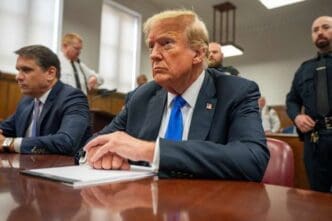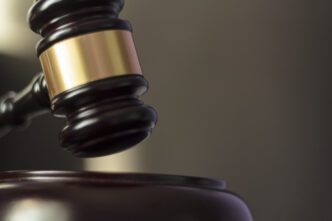In a historic legal proceeding, former President Donald Trump is facing an impending sentencing related to a conviction involving hush money payments. This development follows a decision by Manhattan Judge Juan M. Merchan to set the sentencing for January 10, creating an unprecedented situation where a former and future U.S. president could be sentenced days before taking office.
The case against Trump arises from 34 felony counts of falsifying business records connected to a $130,000 payment intended to silence porn actor Stormy Daniels about an alleged affair with Trump. Despite the conviction, Trump denies the claim and asserts his innocence.
Judge Merchan, confronted with the unique challenge of sentencing a former, yet potentially future president, indicated that he might bring the case to a close without imposing a jail term, fine, or probation. This outcome, known as an unconditional discharge, would leave Trump with a felony conviction on record but without serving any sentence. The judge remarked that Trump could participate in the sentencing remotely due to his presidential transition duties. However, this lenient approach does not clear Trump’s conviction, which remains a significant legal stain.
Trump, however, is actively contesting the verdict. His communications director, Steven Cheung, emphasized that Trump intends to continue fighting for dismissal of the charges. The legal pathways for appeal are complex, but Trump’s team is considering multiple strategies, including potentially escalating the matter to the U.S. Supreme Court. They argue that the recent interpretations of presidential immunity could provide grounds for such an appeal.
The prosecution, on their side, has refrained from commenting on the judge’s recent decision. Previously, they opposed dismissing the conviction and suggested various outcomes, including delaying sentencing or closing the case under presidential immunity, which Judge Merchan found unacceptable.
While Trump can appeal the conviction post-sentencing, a presidential self-pardon is not applicable here, as it only covers federal offences. Trump’s conviction was handed down by a state court in New York, making him ineligible for such a pardon.
As the legal proceedings progress, Trump’s sentencing on January 10 looms large, with potential implications for his political future. This unprecedented legal scenario underscores the complexity of navigating a political and judicial landscape previously untraveled in American history.
Source: News4jax







